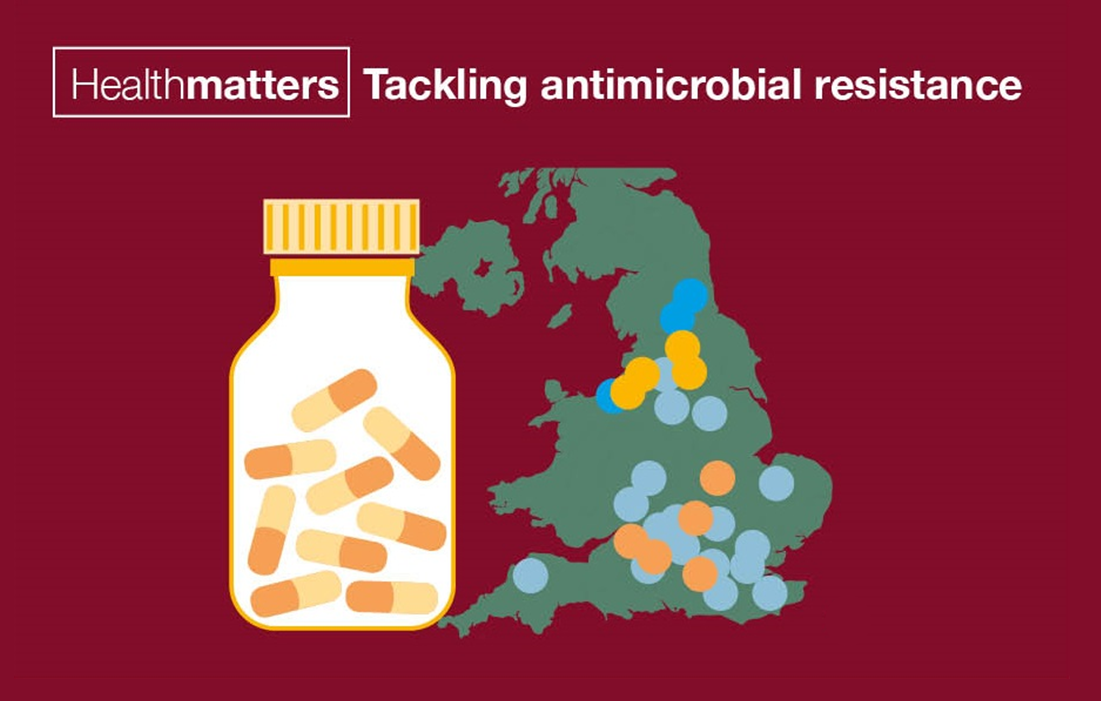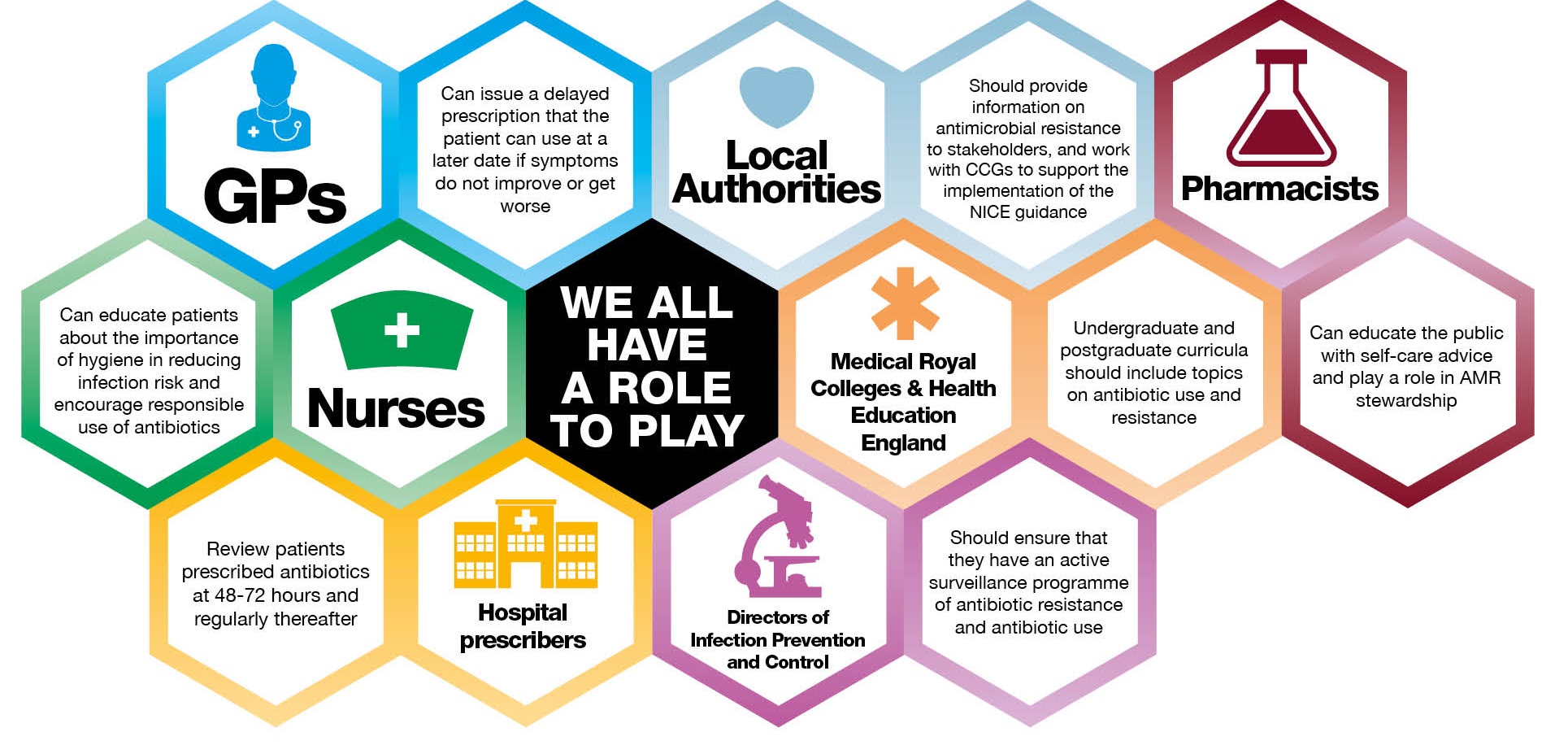
We hope that through the full range of Health Matters antimicrobial resistance content we have made a strong case for action by professionals at local level. The message to individuals/patients is clear and the need for continued national and international action is pressing but how can individual health professionals, GP practices or NHS Trusts make a difference?
A key aim of the UK 5 year AMR strategy is to optimise prescribing practice through implementation of antimicrobial stewardship programmes that promote rational prescribing and control antimicrobial resistance. Public Health England has published two national evidence-based toolkits for use in primary care (TARGET) and secondary care (Start Smart then Focus).
The TARGET toolkit
The TARGET Antibiotics Toolkit includes a range of resources that can be used to support prescribers and patients with responsible antibiotic use, helping to fulfil CPD and medical revalidation requirements.
It’s designed to be used by the whole primary care team within the GP practice or out-of-hours setting and the resources can be used flexibly, either as standalone materials or as part of an integrated package.
Unfortunately surveys have shown us that the majority of CCGs across England haven’t implemented all of the actions recommended in the toolkit but we are encouraged to see some good feedback from CCGs that do use the toolkit, including that the patient facing information and delayed prescriptions have been well received.
Start Smart then Focus toolkit
Start Smart then Focus provides an outline of evidence-based antimicrobial stewardship practice for use in secondary care settings. The toolkit provides information on strategies to improve antibiotic use within secondary care as well as suggested audits to improve practice.
The key focus around SSTF is to encourage prescribers to “Start Smart” when thinking about prescribing antibiotics in secondary care settings and to ensure that at 48-72 hours patients prescribed antibiotics are reviewed and a decision made and documented.
A national survey of antimicrobial pharmacists performed in 2014 showed that 87% of Acute Trusts had either formally or informally reviewed the toolkit but that only 46% had an action plan to implement the recommended antimicrobial stewardship principles. We want to see more action plans put in place as Trusts doing these have reported that they are useful in steering their AMR work.
NICE guidelines: Antimicrobial stewardship
Professionals should also refer to NICE guidelines: Antimicrobial stewardship: systems and processes for effective antimicrobial medicine use. The guideline covers the effective use of antimicrobials in children, young people and adults. It aims to change prescribing practice to help slow the emergence of antimicrobial resistance and ensure that these vital drugs remain an effective treatment.
Complying with NICE guideline on antimicrobial stewardship and using the resources in the toolkits above will enable organisations to demonstrate compliance with the Health and Social Care Act 2008: Code of Practice on the prevention and control of infections and related guidance.

Online training tools
Two useful and free training tools are available that have been mapped to the Advisory Committee on Antimicrobial Resistance and Healthcare Associated Infection/Public Health England competencies.
Health Education England, in partnership with PHE and NHS England, has launched an AMR e-learning programme designed to support both clinical and non-clinical staff.
Clinical staff with prior interest and experience in the prevention, diagnosis and management of infectious disease can take an online course on Antimicrobial Stewardship by the British Society for Antimicrobial Chemotherapy, University of Dundee and Future Learn, with contributions from PHE staff.
Tools to help you make the case/spread the word
We hope that this edition of Health Matters provides a range of information to help you make the case for action in your own organisation. Alongside the latest data you can also find downloadable graphics and slide decks to use in your presentations or social media promotion.
A range of materials and information are available on GOV.UK to help organisations promote antibiotic awareness to healthcare professionals and the public.
And the Antibiotic Guardian website provides an opportunity to engage both professionals and the public who can take the opportunity to select a simple pledge as to how they will make better use of antibiotics in their professional practice or as patients.
Health Matters
Health Matters is a resource for professionals which brings together the latest data and evidence, makes the case for effective public health interventions and highlights tools and resources that can facilitate local or national action. Visit the Health Matters area of GOV.UK or sign up to receive the latest updates through our e-bulletin. If you found this blog helpful, please view other Health Matters blogs.
